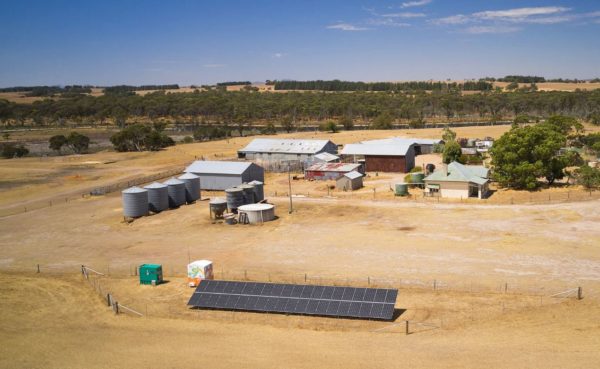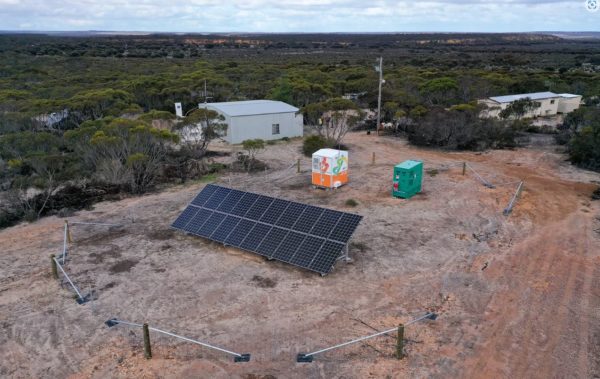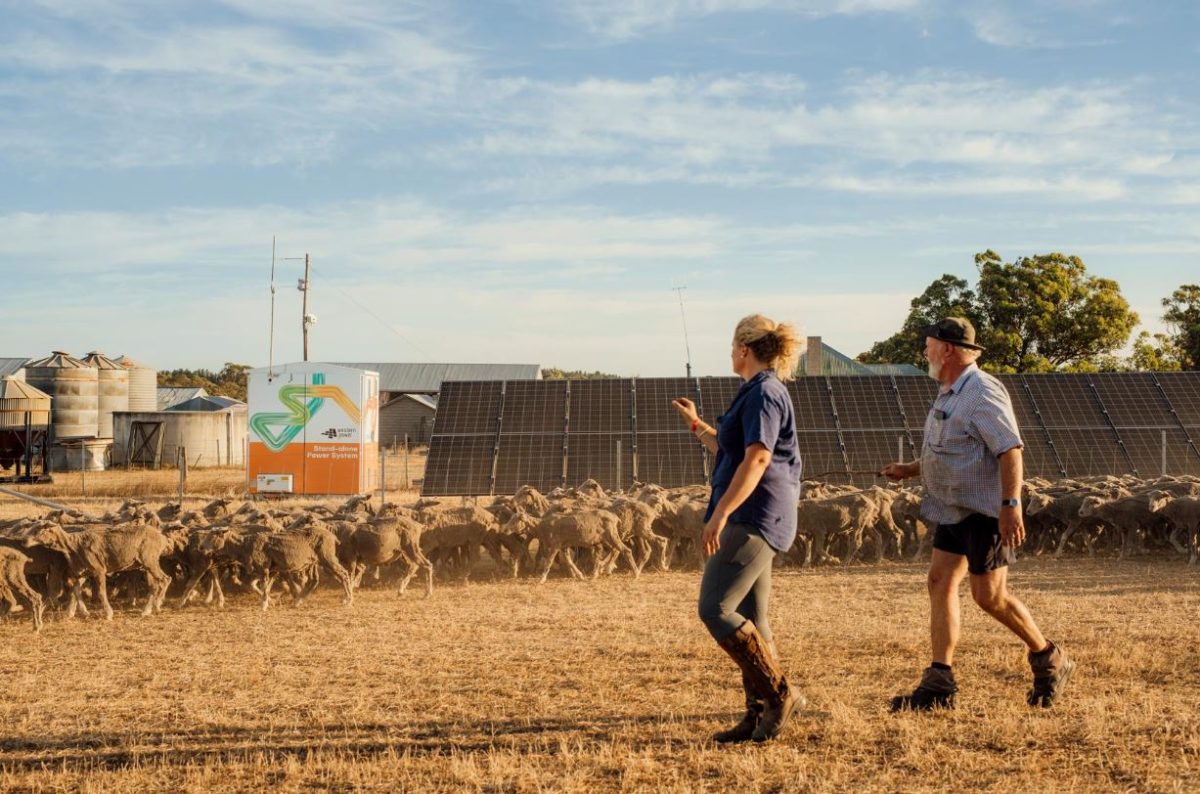Western Australian (WA) publicly owned grid operator Western Power has confirmed that 100 solar-powered standalone power systems (SPS) have now been deployed across the South West Interconnected System, the state’s main electricity grid.
The publicly owned utility said SPS had been deployed at locations throughout the Mid West and Great Southern regions with the latest installed near Shackleton, in the state’s Wheatbelt region about 200 kilometres east of Perth, after a bushfire tore through the area earlier this year.
SPS are renewable, self-sufficient power units that combine solar PV and lithium battery energy storage coupled with a diesel generator to enable back-up power. The modular units and scalable and range from less than 5kWh to 50kWh.
Western Power described WA as the “perfect place” for SPS systems with the units providing improved power reliability and quality for regional and remote customers, and a more cost-effective and safer alternative to traditional poles and wires.
“SPS is particularly beneficial for regional customers, where supply costs are high and power reliability is impacted by distance, terrain and severe weather events,” the utility said.
Western Power SPS project lead Margot Hammond welcomed the latest milestone but said “we’re only at the start, with 4,000 units to be rolled out before the end of the decade”, with a focus on properties where energy infrastructure is scheduled for significant maintenance.

Image: Western Power
Hammond said utilising SPS technology rather than replacing the traditional overhead infrastructure presents an opportunity to provide a more reliable service at a lower cost.
It’s expected that more than 50,000 power poles and 23,000 kilometres of conductor will be removed following the deployment of SPS units.
The program builds on a trial program of six SPS launched at farms in the Great Southern region of WA in 2016. Western Power said since those first units were installed, its estimated they’ve reduced the power outage time over five years from a likely 1,000 hours to just 72 hours with about 90% of the properties’ power supply met by solar PV – buffered by battery storage.
“It’s been a whirlwind few years,” Hammond said. “When you sit back and reflect on the journey, it really is amazing that these quite simple units pack as much punch as they do.
“It’s been a game changer for those regional customers that have often experienced outages due to the difficulties of supplying power along long, long lines where a lot can go wrong.
“And they get to tap into our abundant sunshine and power their properties with more renewable power.”

Image: Western Power
Hammond said the latest program milestone follows a recent Western Power customer research report that found high levels of satisfaction with SPS. Participating customers rated their overall satisfaction at 8.2 out of 10 (10 being excellent), while their satisfaction with poles and wires connection, pre-SPS, was lower at 6.7 out of 10.
Energy Minister Bill Johnston the survey results were a great outcome, with more than 75% of customers saying they were likely to recommend standalone power systems to others.
“The research also indicated renewable energy is important to rural customers, with a third of participating customers already using solar, and believing it was the way of the future,” he said.
The success of WA’s SPS program is expected to flow over to the eastern states with the Australian Energy Regulator beginning consultations to allow distributor-led units to become part of the national electricity system.
From August 1, distribution network service providers will be able to connect customers to SPS. Those connections will be allowed in instances where it may be cheaper, safer and more reliable than connection to the grid.
This content is protected by copyright and may not be reused. If you want to cooperate with us and would like to reuse some of our content, please contact: editors@pv-magazine.com.









1 comment
By submitting this form you agree to pv magazine using your data for the purposes of publishing your comment.
Your personal data will only be disclosed or otherwise transmitted to third parties for the purposes of spam filtering or if this is necessary for technical maintenance of the website. Any other transfer to third parties will not take place unless this is justified on the basis of applicable data protection regulations or if pv magazine is legally obliged to do so.
You may revoke this consent at any time with effect for the future, in which case your personal data will be deleted immediately. Otherwise, your data will be deleted if pv magazine has processed your request or the purpose of data storage is fulfilled.
Further information on data privacy can be found in our Data Protection Policy.